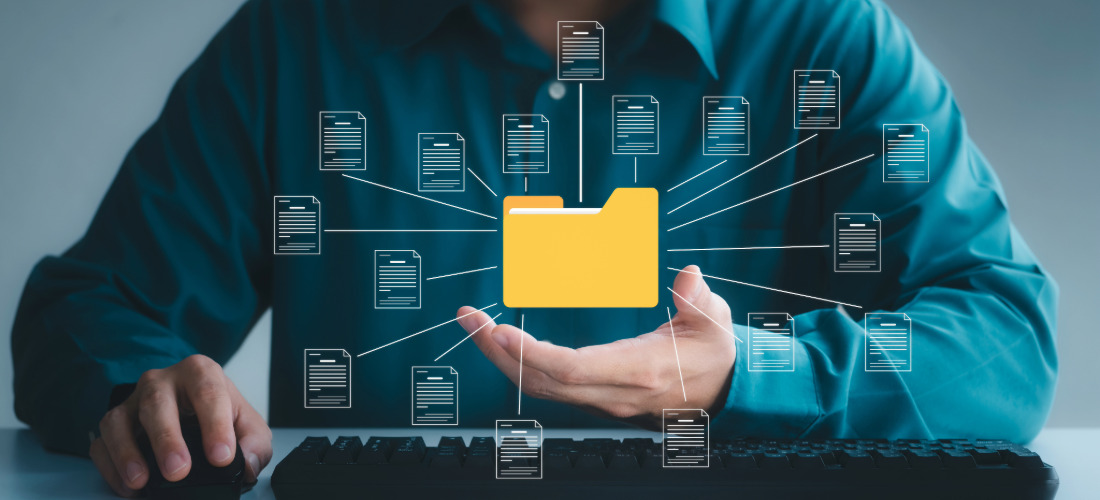
Two-thirds of Americans trust their local government according to a recent Gallup poll. To sustain and even build on this high level of trust, local governments face important decisions about operational efficiency, including the choice between outsourcing and handling tasks internally.
This decision is especially critical in areas like tax collection, where the efficiency and transparency of the process can significantly impact public perception and trust.
At this crossroads, local governments must carefully consider whether to manage tax collection in-house using software or to outsource to a third-party service. Each option presents its own advantages and drawbacks.
Here’s a look at the pros and cons of each to provide agencies with insights to make the right choice for their needs.
Pros of In-House Tax Collection With Specialized Software Support
Here are the advantages of in-house tax collection with software support for local governments.
1. High Level of Local Knowledge & Expertise
Local governments possess a high level of understanding of their community’s unique characteristics, from local business environments to economic challenges. In-house tax collection takes advantage of this local knowledge, allowing tax officials to engage directly with taxpayers, which can lead to more accurate assessments and streamlined collection methods. This firsthand understanding is especially crucial when handling any disputes or exemptions, ensuring decisions are made with the appropriate context.
2. Improved Compliance & Enforcement
By managing tax collection in-house, local governments can tailor their enforcement strategies to fit the specific needs and behaviors of their community. This flexibility leads to improved compliance rates as strategies can be adjusted in real time based on direct feedback from local businesses and residents. In larger jurisdictions, where the complexity of tax issues and the volume of transactions are higher, this adaptability is particularly beneficial, ensuring that compliance efforts are both efficient and effective.
3. More Cost-Effective
Although setting up in-house tax collection systems can require an initial investment in technology and training, these costs are often offset by the savings from not having to pay annual or monthly external provider fees. Over time, scalable software solutions, like the GovOS Tax and Compliance Suite, can lead to substantial cost reductions, as these systems streamline processes and reduce the need for extensive manual labor and the associated human error.
4. Enhanced Oversight & Control
Most importantly, in-house collection gives local governments an increased level of direct oversight over the tax collection process, allowing for greater accountability and transparency. This control is vital for aligning operations with local policies and maintaining public trust, as it guarantees that all actions are visible and subject to local government review.
Cons of In-House Tax Collection
Despite the advantages, there are challenges with in-house tax collection systems that should be considered.
1. Resource Requirement
The main drawback of in-house tax collection is the need for substantial resources. Local governments will need to invest in both the technology and the training of personnel to handle tax collection efficiently. For smaller agencies, where budget and tax expertise might be limited, meeting these demands can be challenging.
2. Scalability Challenges
As communities grow, so do their administrative needs. Scaling in-house tax collection systems to accommodate growth requires ongoing investment in technology and staff training. For some local governments, keeping pace with these demands without compromising service quality can prove challenging.
Pros of Outsourcing to Third-Party Tax Collection Services
Here are the potential benefits that outsourcing can provide to local governments.
1. Convenience & Expertise
Outsourcing tax collection to third-party vendors can simplify the process for local governments by leveraging the expertise and established systems of external specialists. This can be particularly beneficial for smaller agencies that do not have the resources to maintain in-house tax collection systems.
2. Reduced Immediate Resource Requirement
By outsourcing, local governments can alleviate the immediate burden on their staff, freeing up resources to focus on other areas of public service. This can be helpful during periods of resource constraints or when in-house expertise in tax collection is lacking.
Cons of Outsourcing Tax Collection
Outsourcing tax collection is not without its drawbacks and several challenges can arise when relying on external providers.
1. Lack of Local Knowledge
External vendors may not have a deep understanding of the local context, which can lead to less effective tax collection strategies. Without this local insight, third-party services might apply generic solutions that do not account for regional specificities, potentially leading to conflicts and dissatisfaction among taxpayers.
2. Higher Long-Term Costs
While outsourcing may seem cost-effective in the short term, it can become more expensive over time. Continuous fees for services can add up, often surpassing the cost of developing and maintaining an in-house system. The dependency on external services may incur hidden costs such as fees for contract renegotiations, updates, and service adjustments, which can further escalate overall expenses.
3. Limited Oversight & Control
Dependence on third-party providers for tax collection reduces a local government’s control over the process, potentially leading to issues with compliance and transparency. This reduced oversight can also make it more challenging to ensure collections are conducted according to local laws and cultural norms.
Which Path Will Your Agency Take to Streamline Tax Collection Services?
Choosing between in-house tax collection supported by software and outsourcing to third-party services requires a balanced consideration of a local government’s specific needs, resources, and long-term objectives. While in-house collection offers enhanced control and cost savings, it requires dedicated resources and a plan to scale. Conversely, outsourcing provides immediate resource relief but may come at the cost of higher long-term expenses and reduced control.
Your agency must weigh these factors to select the best approach for the community, aiming for an optimal blend of effectiveness, efficiency, and fiscal responsibility.








